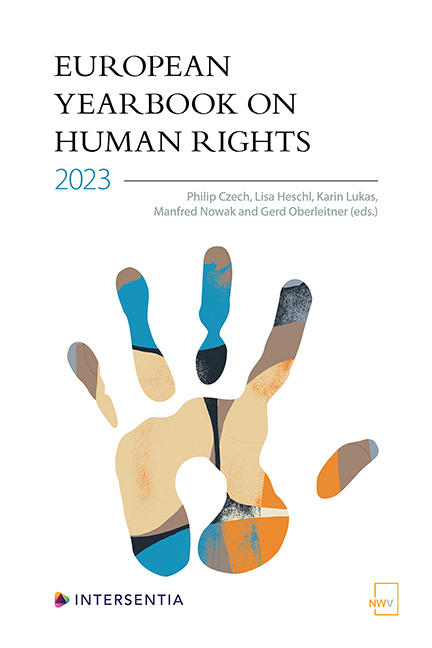Iryna Bogdanova (ed.): Unilateral Sanctions in International Law and the Enforcement of Human Rights: The Impact of the Principle of Common Concern of Humankind
Published online by Cambridge University Press: 04 April 2024
Summary
In contemporary times, the discourse surrounding sanctions has gained substantial prominence and attracted considerable attention. Particularly in the wake of Russia's illegal invasions of Ukraine, in 2014 and 2022, the legality and efficacy of sanctions have become subjects of intense scrutiny. It is within this context (though not yet addressing Russia's 2022 aggression) that Iryna Bogdanova's monograph emerges, offering a comprehensive analysis of unilateral economic sanctions in international law.
The book is structured into three parts and encompasses five substantive chapters, along with an introduction and conclusion. The monograph primarily revolves around the legality of unilateral economic sanctions (Part 1) and places special emphasis on sanctions imposed to redress severe human rights violations (Part 2). The third part, shorter than the previous sections, explores the doctrine of the common concern of humankind. This doctrine recognises that certain challenges possess the capacity to jeopardise international stability, peace and welfare, thus transcending national borders as shared issues of humankind. Bogdanova examines the potential contribution of this doctrine, which entails a number of normative obligations, to enhancing international human rights protection. She particularly explores whether it can provide a basis for legitimising unilateral human rights sanctions.
At the core of Bogdanova's argument lies the contention that the legality of unilateral economic sanctions remains a subject of controversy in international law, even when aimed at remedying serious human rights violations. However, she posits that the doctrine of the common concern of humankind presents a promising framework for legitimising unilateral human rights sanctions.
The monograph defines unilateral economic sanctions as ‘restrictive economic measures imposed by an individual state against another state and/or its government officials and bodies, legal entities and foreign nationals, in pursuance of political objectives and without any prior authorisation from an international or regional organisation’ (pp.5, 60). Consequently, the book does not cover sanctions imposed by the United Nations Security Council (UNSC) or autonomous sanctions adopted by the European Union (EU). Additionally, it does not address the unilateral measures states undertake to implement UN sanctions. Bogdanova thus subscribes to a broad notion of the term ‘sanction’. Nevertheless, she acknowledges the ongoing debate regarding whether the concept denotes only restrictive measures authorised by international organisations in accordance with their constituent documents.
- Type
- Chapter
- Information
- European Yearbook on Human Rights 2023 , pp. 685 - 688Publisher: IntersentiaPrint publication year: 2023

